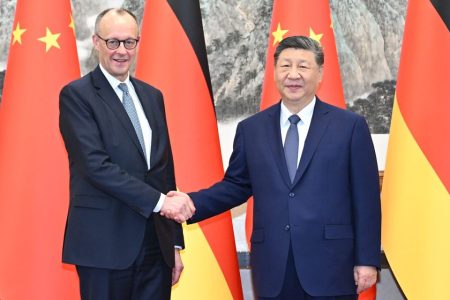China’s Ministry of Commerce has slammed Washington’s latest control measures on semiconductor exports as economic coercion and non-market practice, state media reports.
On Monday, President Joe Biden’s outgoing administration announced curbs on the sale of two dozen types of semiconductor-making equipment and restrictions on numerous Chinese companies that would prevent them from accessing US technology.
Washington justifies what is tantamount to a high-tech blockade by citing its national security interests. In response, Chinese officials issued a statement accusing the US of overstretching the concept of national security, abusing export control measures, and engaging in “unilateral bullying.”
Beijing also reportedly closed a loophole enabling the sale of several materials crucial for the production of semiconductors and electric vehicle batteries to the US. The Ministry of Commerce said it was blocking these “super hard” materials from reaching the US because they may be used for military purposes.
[See more: Washington’s national security memo on AI could intensify the tech war with China]
Monday’s announcement from the White House was the third round of export restrictions the country had imposed on Beijing in three years. US Secretary of Commerce Gina Raimondo told media that this round contained “the strongest controls ever enacted by the US to degrade [China’s] ability to make the most advanced chips that they’re using in their military modernisation.”
However, the restrictions are also having the unintended effect of rapidly accelerating China’s technological development as the country seeks self sufficiency. The number of domestic enterprises dedicated to strategic technologies now totals 14,600, the South China Morning Post reports, exceeding the government’s goal of cultivating 10,000 such firms by 2025.
“China is claiming market share in an increasing number of industrial sectors like automotive, home appliances and machinery,” said Xu Tianchen, a senior economist at the Economist Intelligence Unit market research firm.
A senior Chinese analyst meanwhile predicts that the nation will overtake the US in high-tech and military manufacturing by 2035.




